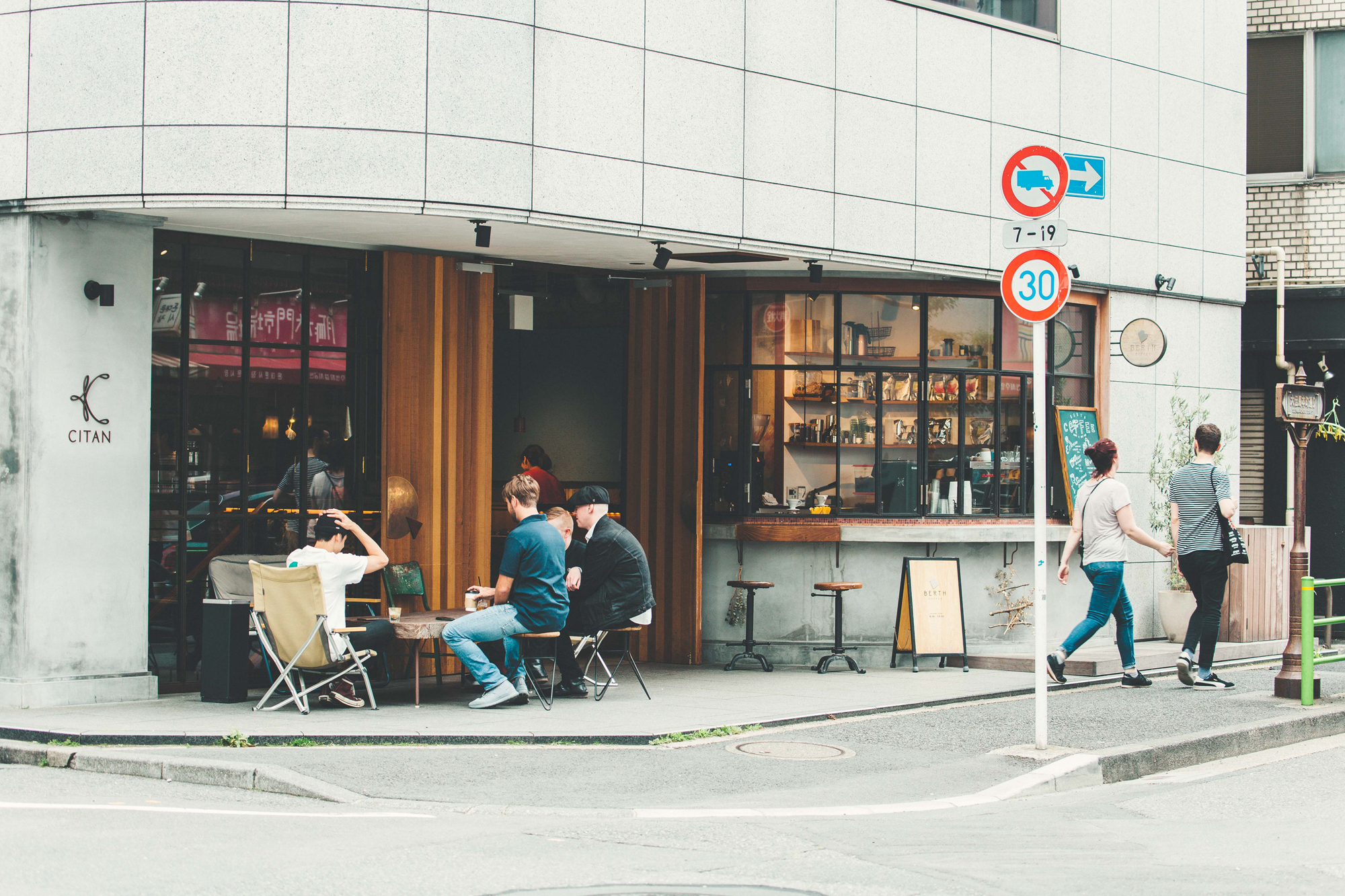At Almond Hostel and Cafe, just a few minutes west of Yoyogi Park, the check-in computer in the lobby shares counter space with a silver La Marzocco espresso machine.
As guests sign in, toting suitcases, backpacks and other accoutrements of travel, staff drip coffee in a stand by the window or pour steamed milk over shots of custom-blend espresso. The lobby is full with people — not all of whom are guests — chatting, reading or typing intently at their devices. With a fashion designer quietly touting his wares on one side of the simple concrete-floored space, it feels less like a hotel and more like a multipurpose community center.
Almond is one of many combination hotel and coffee shops popping up in the Tokyo metropolitan area in what has been an accommodation boom for Japan. By the end of 2020, the number of hotel rooms in the country's eight largest cities is expected to total 330,000, a 32 percent increase from 2016. And they might all be needed: In mid-December the Japan National Tourism Organization (JNTO) reported that the number of visitors to Japan in 2018 had topped 30 million; by 2020, the country hopes to welcome over 40 million tourists annually.

















With your current subscription plan you can comment on stories. However, before writing your first comment, please create a display name in the Profile section of your subscriber account page.